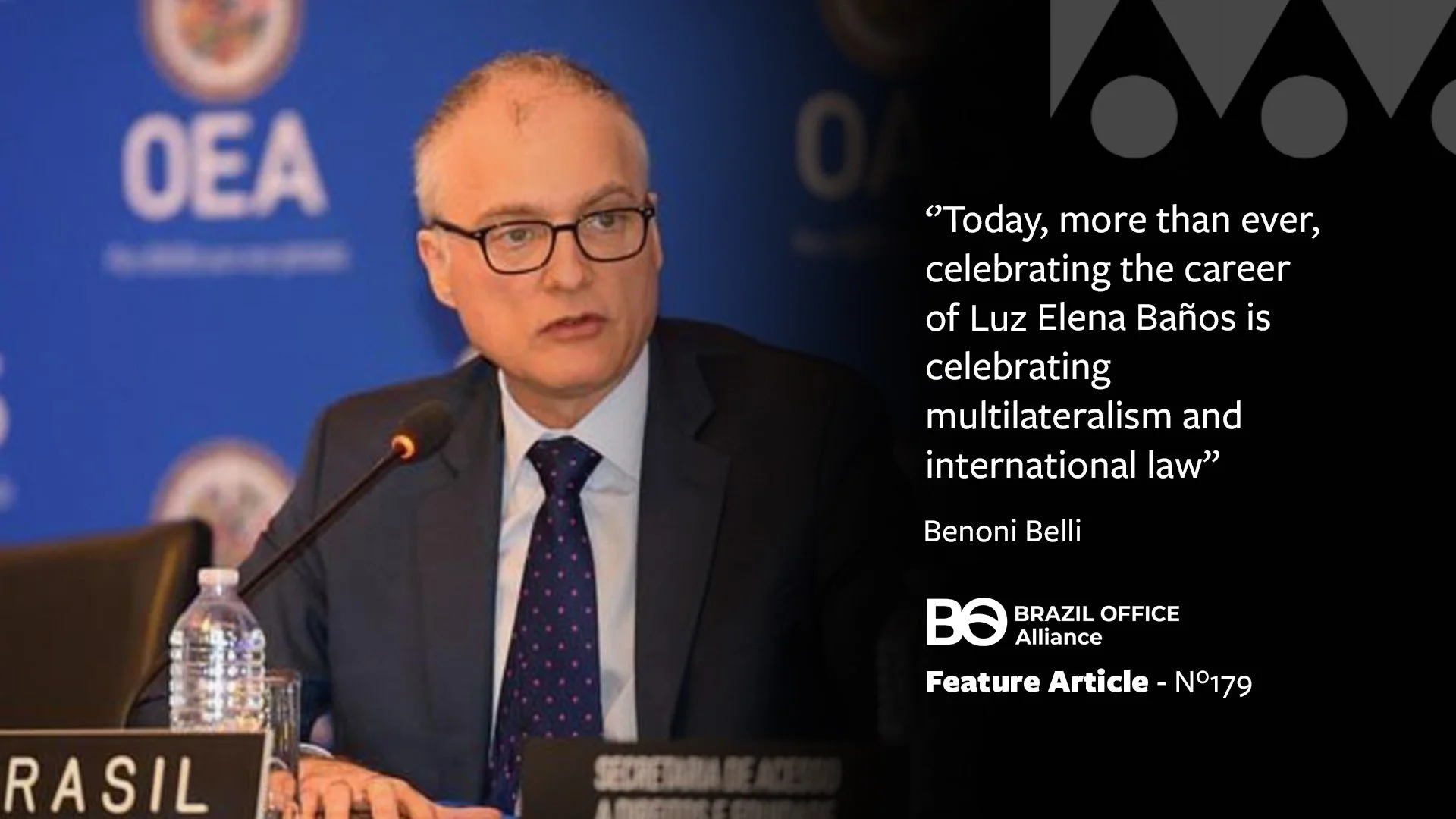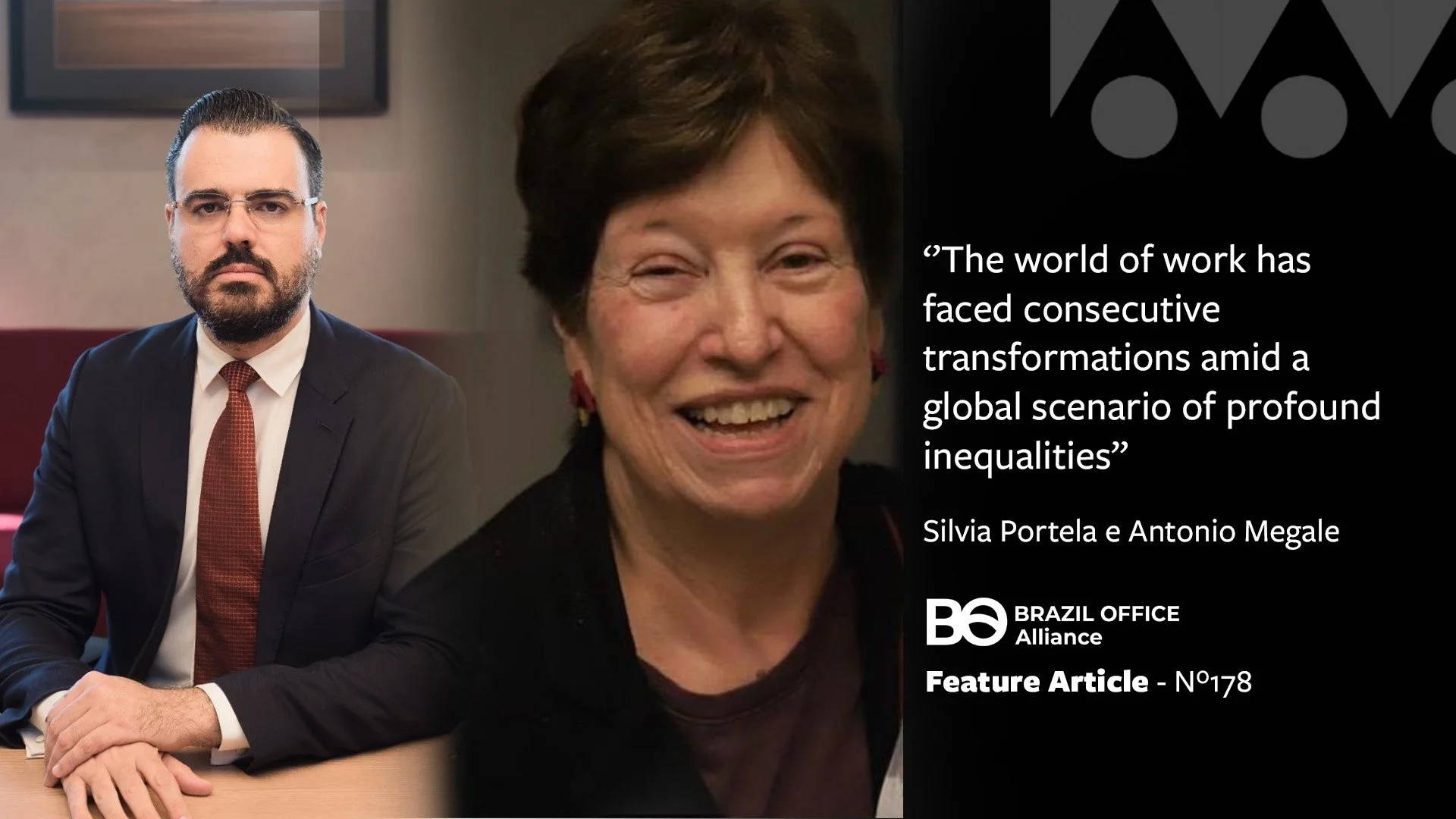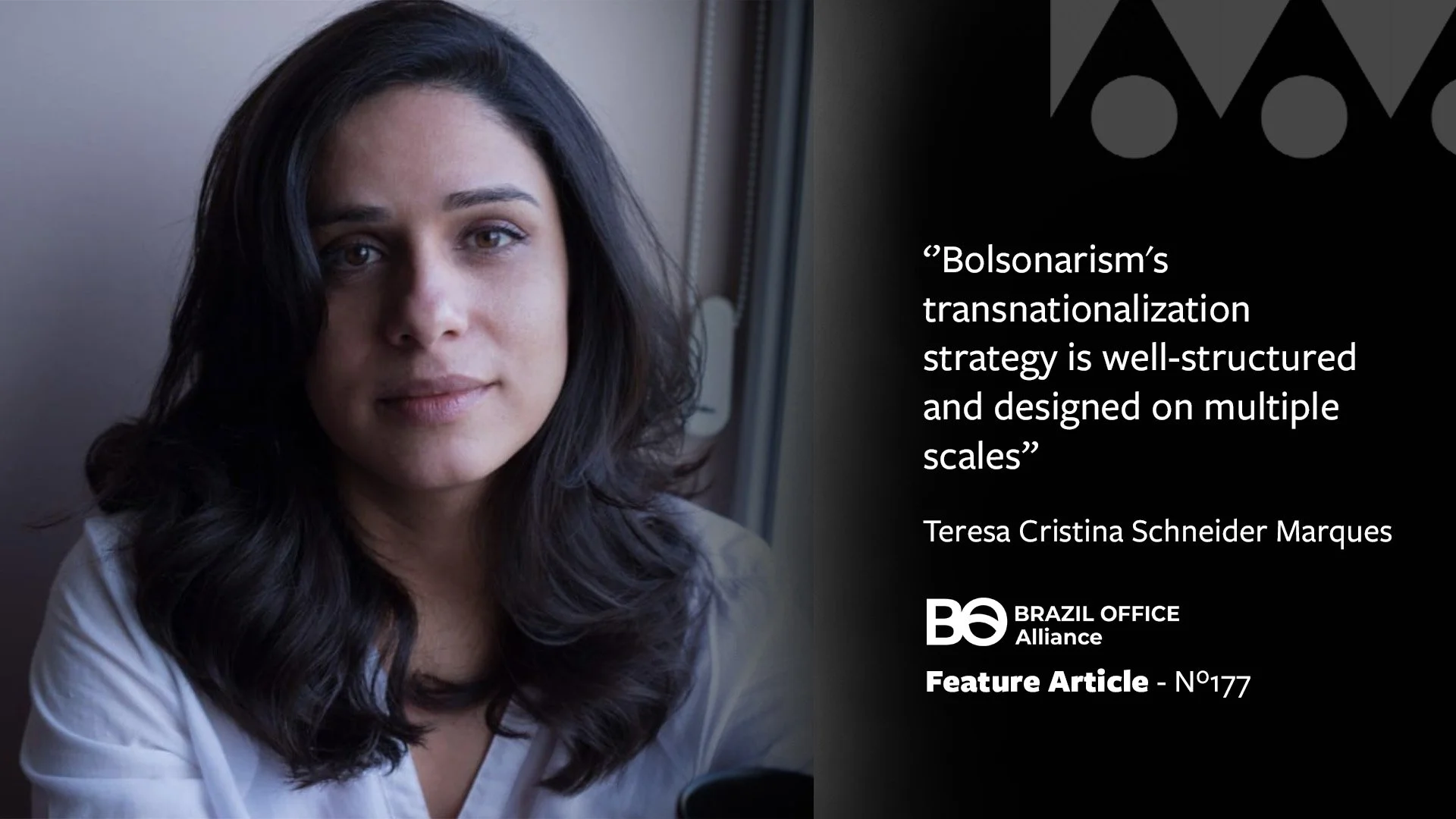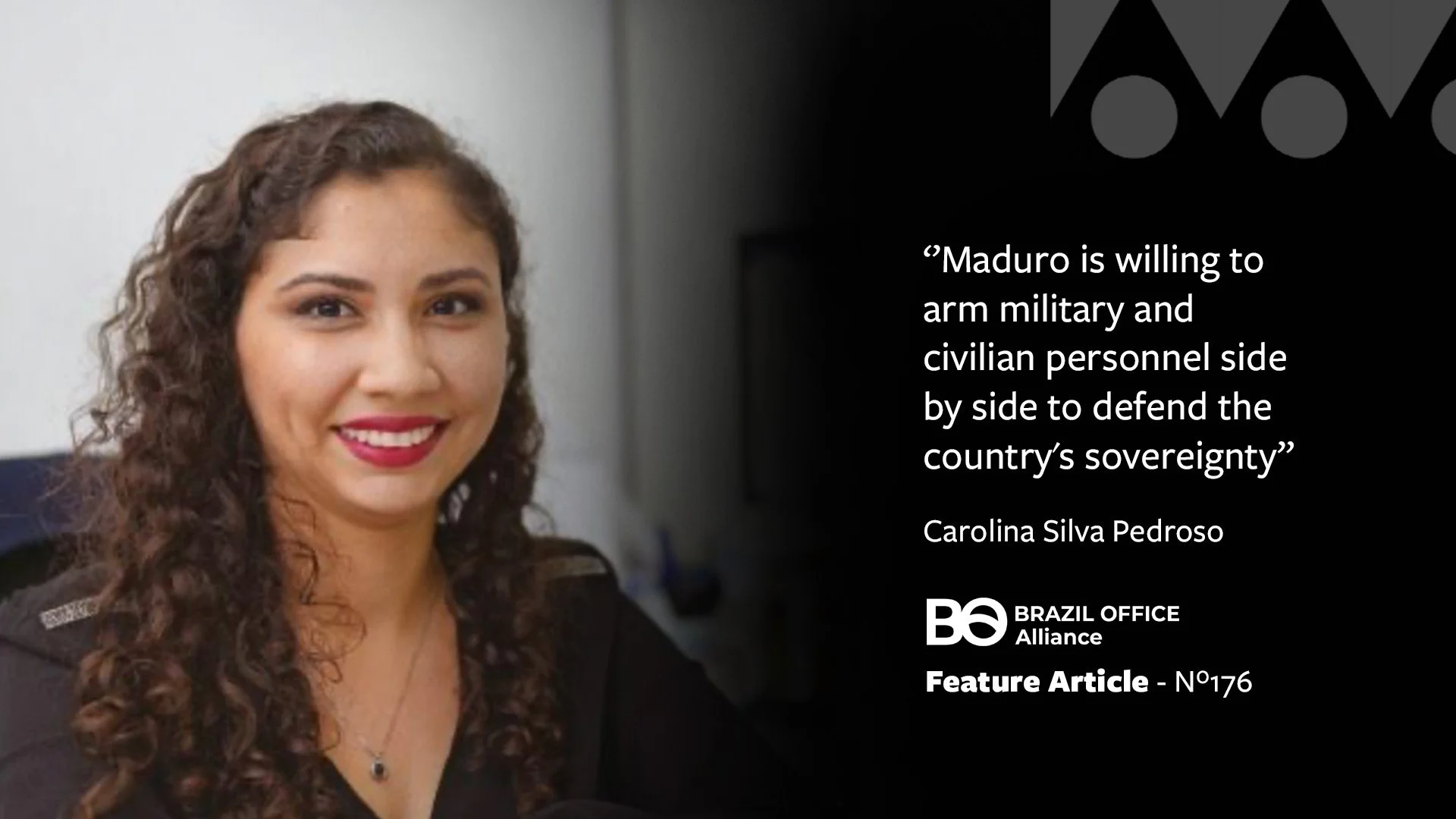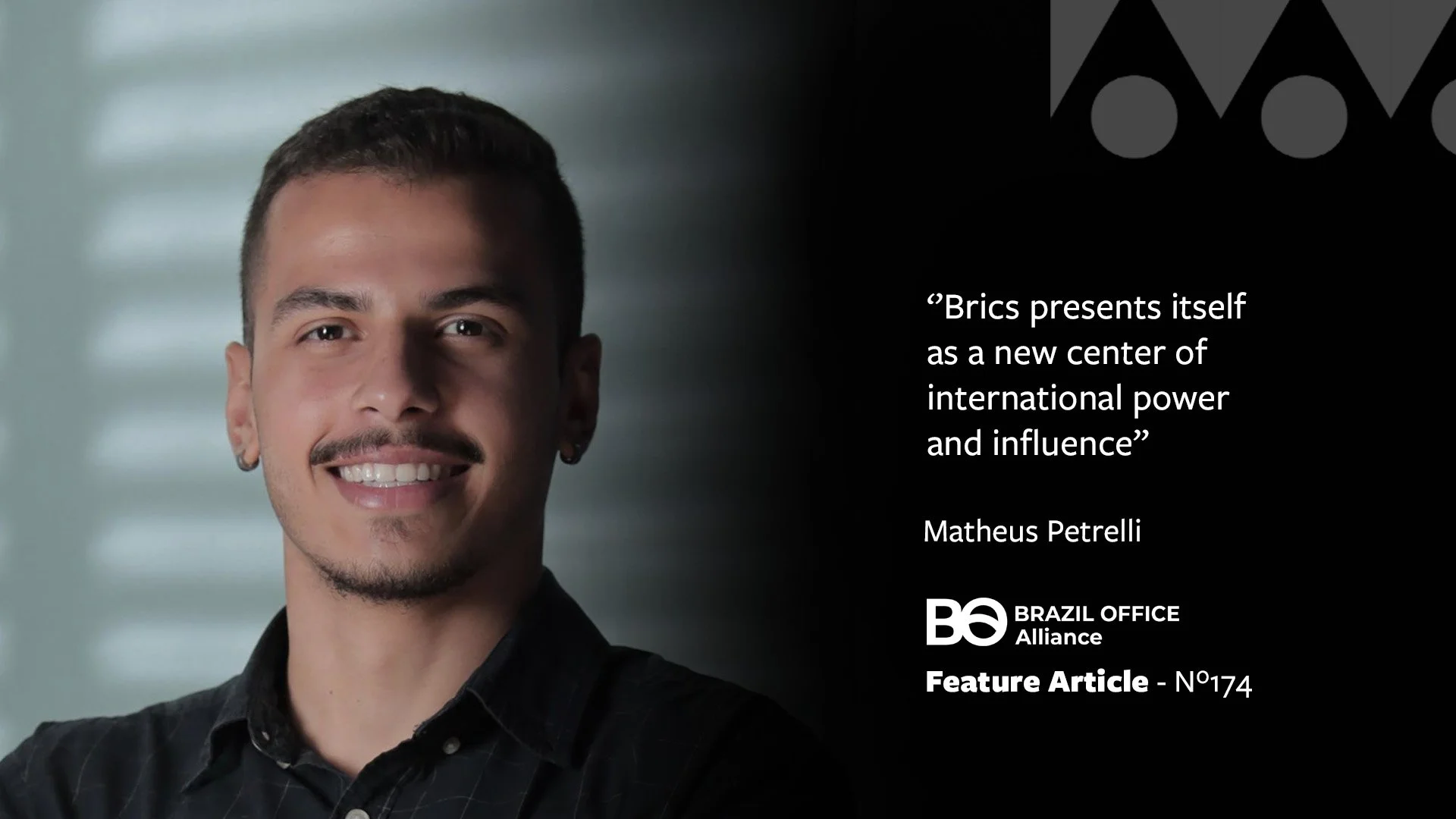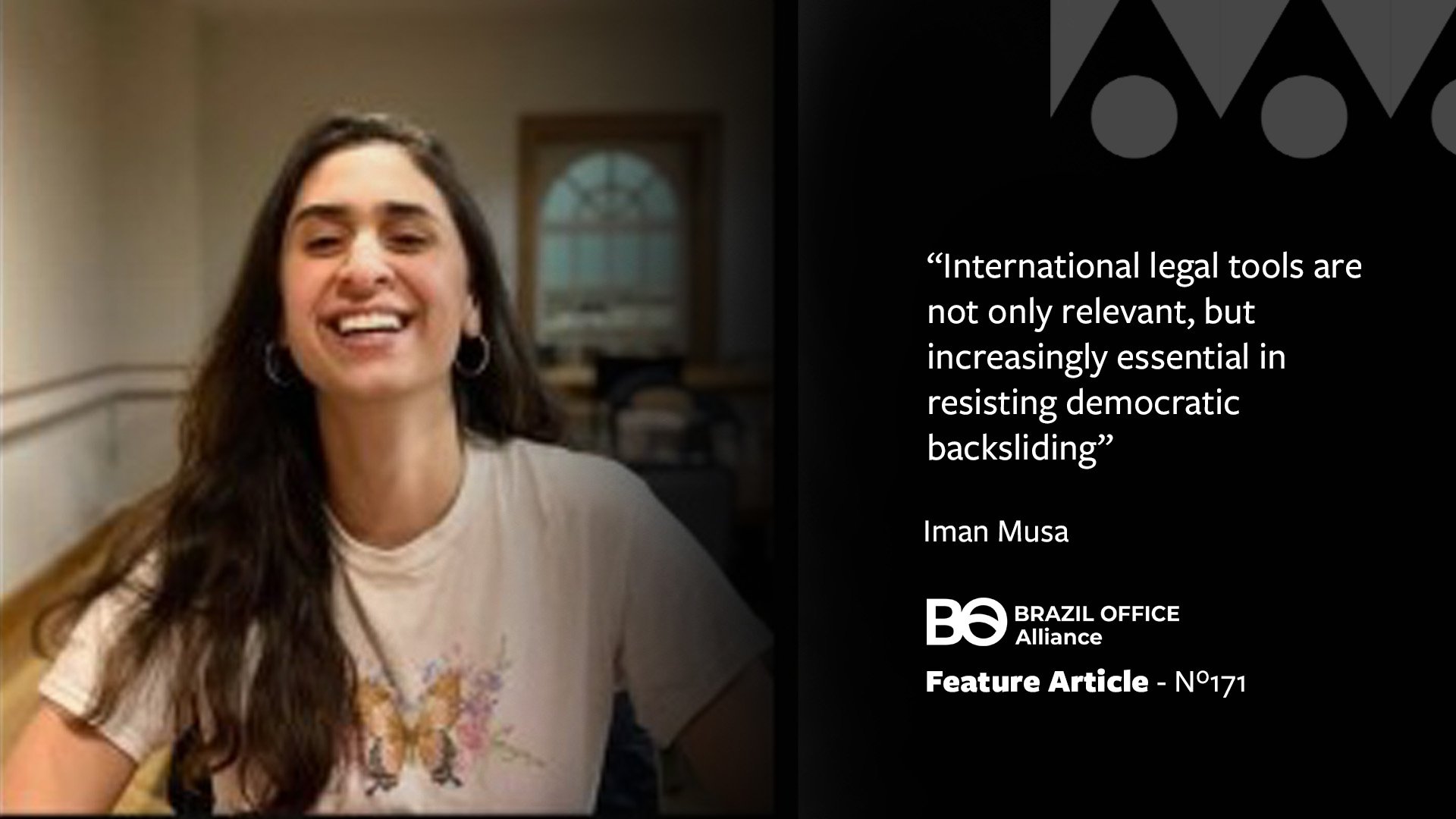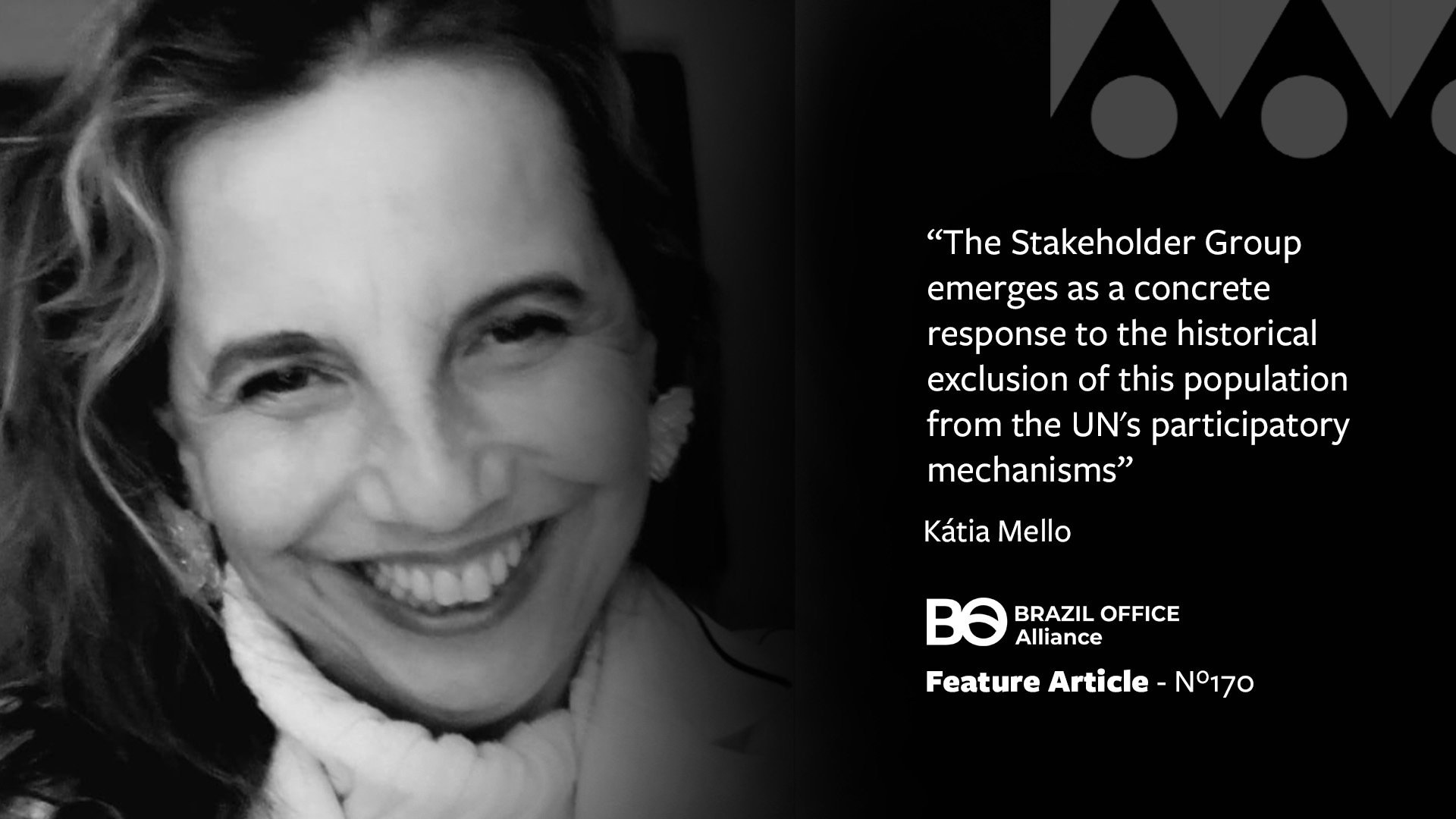Publications
Featured ARTICLESThe Strength of Multilateralism: A Tribute to Luz Elena Baños
After more than six years leading the Permanent Mission of Mexico to the Organization of American States (OAS), Ambassador Luz Elena Baños will soon leave the position she held with pride, courage, and great distinction. She has been a career diplomat with nearly four decades of service to her country, during which time she accumulated vast experience in Latin America, the Caribbean, Europe, and Asia. During this period, she became an expert on a variety of fundamental issues—from security and defense to human rights, gender equality, and development. Luz Elena Baños put all this experience to work strengthening multilateralism at the OAS.
Observatory of International Labor and Social Rights – ODTI
Over the past five decades, the world of work has faced consecutive transformations amid a global scenario of profound inequalities and environmental destruction, the consequences of which primarily affect the poorest.
International Migrants on the Far Right and the Transnationalization Fronts of Bolsonarism in the US
Trumpism and Bolsonarism comprise the so-called "neopatriotic far right," a political movement that, according to Sanahuja and Burian (2024), may have specificities in each country, but which shares a discourse of distrust in the electoral processes of liberal democracies. This "ideological synergy" has made the two countries a hub for transnational and international articulation of the Brazilian far right, according to Paulo Abrão (2024). Furthermore, the United States has the largest population of Brazilians living abroad—over 2 million—and became the foreign country where Bolsonaro achieved his largest extraterritorial electoral victory in 2022.
How US Threats to Venezuela Would Affect Brazilian Leadership in South America
If there was any doubt about the hostility of Donald Trump's policy toward Latin America, his speech at the UN General Assembly on September 23 was illuminating. After discussing the alleged threats posed by Latin American immigrants, the US president targeted his attacks on Venezuela. He claimed that the attacks on Venezuelan vessels had blocked the entry of drugs into his country and, consequently, prevented the deaths of thousands of its citizens. In the same vein, he categorically stated that "terrorist" drug trafficking organizations were the “worst gangs in the world.” The message was brief but direct: the escalation of tensions in the Caribbean will continue.
Brazil and Mondiacult 2025. Challenges of Multilateralism and Cultural Cooperation
Mondiacult is the global conference on cultural policies and sustainable development, promoted by the United Nations Educational, Scientific and Cultural Organization (UNESCO) and historically recognized as the leading international forum for debate and formulation of cultural policies.
Relations between Brazil and India from the Multilateral Nexus: From the Bandung Conference to the 2025 BRICS Summit
The BRICS summit, held in Rio de Janeiro in June 2025, focused media and public attention on the contemporary debates that permeate the dynamics of the international system. With approximately 50% of the world's population and approximately 40% of global GDP, the bloc, comprised of Brazil, Russia, India, China, South Africa, Iran, Indonesia, Egypt, Ethiopia, and the United Arab Emirates, presents itself as a new center of international power and influence.
Unlocking Climate Finance through Forests: Brazil, BRICS, and the Road to COP30
In a world shaped by geopolitical tensions, structural inequalities, and accelerating environmental degradation, the climate crisis is advancing, alongside the urgent need for effective solutions. While technical options are widely known, their global implementation is hindered by a persistent financing gap. One of the most critical shortfalls lies exactly where some of the most promising climate solutions exist: tropical forests.
The BRICS and the Escalation of War
The BRICS countries are at the center of the geopolitical equations of global conflicts. Russia's wars against Ukraine, Israel's colonialist escalation against Palestine and, subsequently, Israel's war against Iran, as well as Trump's tariff measures have impacted international relations. This BRICS Summit meeting, which will take place in Rio de Janeiro on July 6 and 7, 2025, under the presidency of Brazil, will be more than heated.
Empowering Grassroots Leaders Through International Law: Reflections on the WBO’s Inter-American System on Human Rights Course
Between April and May 2025, the WBO held the online course “Inter-American System on Human Rights,” a groundbreaking initiative that brought together civil society leaders, students, and activists from across Brazil and the Americas. The course was part of the broader project “Strengthening the International Action of Environmental and Indigenous Organizations, Activists, and Defenders in Brazil,” made possible through the generous support of the Behner Stiefel Center for Brazilian Studies at San Diego State University.
The Stakeholder Group of People of African Descent is created at the UN
The official announcement of the creation of the Stakeholder Group of People of African Descent at the United Nations in May is a historic victory for Geledés-Instituto da Mulher Negra, which initiated this campaign at the UN in September 2023. More than that, it is a victory for all global diasporas, since for the first time, Afro-descendant voices, in an institutionalized way, are included in the participatory structures of the United Nations. In addition to Geledés, the co-presidency (Steering Committee) includes the NGO Criola and UNARC (UN Anti-racism Coalition).
Alexandre de Moraes and Shaken Democracy in Brazil
In recent years, Minister Alexandre de Moraes of the Brazilian Supreme Court has assumed a central position in the public debate. His actions have divided opinions: on one side, there are those who proclaim him a bastion of the defense of democracy in Brazil. On the other, there are those who condemn him as an executioner of freedom of expression.
Beyond the Amazon: The Cerrado (Savannah) Biome and COP 30
Amidst the hustle and bustle over the Amazon rainforests, a silent giant is crying out for attention: the Cerrado. The second largest biome in South America, it covers 2,036,448 km² – the equivalent of 22% of Brazil’s territory, spread across ten states and the Federal District (Goiás, Mato Grosso, Mato Grosso do Sul, Minas Gerais, Maranhão, Bahia, Piauí, Tocantins, Roraima and Pará). But, in the wake of the heated debates at COP 30, why does the Cerrado remain relegated to the background?
Brazil’s Laws of Land Grabbing
Brazil is a global leader in agriculture and land investments but also in the assassination of environmental defenders and in tropical deforestation that drives massive droughts, floods, and extinctions. Of Brazil’s vast 8.5 million km² territory, half lies within overlapping tenure categories, one-sixth is absent from officially registered maps, 6.4% lacks an official land-use designation, and nearly 10% was under active land conflict in 2022. What explains this disorderly and violent frontier expansion that threatens Indigenous people, ecosystems, and even agricultural viability itself?
Brazil's Commitment to Human Rights and the Inter-American System
We are living through a particularly challenging time for human rights in the Americas. Beyond the persistent violations affecting Indigenous peoples, Black communities, women, LGBTQIA+ persons, migrants, human rights defenders, and many other vulnerable groups, the continent is facing a broader crisis marked by the weakening of multilateralism and the growing difficulty of achieving consensus within states, between them, and even within the Inter-American Commission on Human Rights (IACHR).
What is the Legal Status of Jair Bolsonaro in Brazil?
Former President Jair Bolsonaro was indicted on February 18, 2025 by the Office of the Attorney General (PGR) for committing several crimes, including an attempted coup d'état, abolition of the democratic rule of law, and criminal organization, along with 33 other people. The Brazilian Supreme Court (STF) unanimously accepted the indictment on March 26, 2025, thus making him a defendant.
The United States Made Me a Victim of Global Anti-trans Policies
I am the first Black and trans woman elected to the Brazilian Congress and one of the most influential progressive voices in Brazil, and I had my gender deliberately changed from “feminine” to “masculine” on a diplomatic visa issued by the U.S. Embassy in Brasília.
The Demarcation of Indigenous Lands in the context of the “Time Frame Thesis”
Between advances and setbacks in recent years, the demarcation of indigenous lands has faced major challenges at the national level due to the “time frame” (marco temporal) thesis. In this context, international bodies have been essential in reminding Brazil of its commitments to Indigenous peoples.
There is Still Time to Judge the Crimes of the Dictatorship
The Supreme Federal Court has decided to reconsider the responsibility for the crimes committed by the military dictatorship. This does not seem to be a mere coincidence with the success of the wonderful film Ainda Estou Aqui (I’m Still Here) by Walter Salles Filho. But knowing whether it was the film or another fact is not so important, since what is important is to overcome the constant refusal of the judiciary to deal with the legacy of the authoritarian regime that governed the country from 1964 to 1985.
Holding up the Sky or Walking Towards the Precipice
Attacking the territorial rights of indigenous peoples is taking a step closer to the end of the world. It seems alarming at first glance, but it is a catastrophic scenario that is approaching, according to reports from the United Nations Intergovernmental Panel on Climate Change. Indigenous lands, which are the largest areas of climate security in Brazil, face a legal theory known as the “temporal framework,” which holds that Indigenous peoples only have the right to constitutionally guaranteed territories if they had settled there on the date of the promulgation of the Federal Constitution of 1988. This thesis is trying to be incorporated into the Brazilian legal system by the three branches of government.

